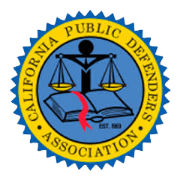Ever wondered about the tug-of-war in the courtroom dramas where lawyers juggle terms like “federal” and “state”? Well, you’re not alone. The landscape of law is vast, with twists that could rival any maze. At its heart lies a crucial distinction – Federal vs. State Charges – each playing by its own set of rules on this chessboard we call justice. Whether it’s a high-stakes game involving drug trafficking or an intricate dance around tax evasion laws, knowing which court your case lands in can change everything.
Table Of Contents:
- What Are Federal Crimes?
- What Are State Crimes?
- Differences in Prosecution Between Federal and State Charges
- Differences in Sentencing Between Federal and State Charges
- Importance of Legal Representation in Federal and State Cases
- Conclusion
What Are Federal Crimes?
When it comes to criminal charges, one of the first things to understand is the difference between federal crimes and state crimes. Federal crimes are offenses that violate federal laws or involve federal agencies.
These crimes are investigated by federal law enforcement agencies like the FBI, DEA, or IRS, and prosecuted in federal courts by federal prosecutors.
Examples of Federal Crimes
Some common examples of federal crimes include:
- Drug trafficking
- Mail fraud
- Tax evasion
- Counterfeiting
- Kidnapping across state lines
- Bank robbery
- Immigration offenses
Federal crimes typically involve conduct that crosses state lines, occurs on federal property, or directly impacts federal interests.
Types of Federal Crimes
Federal offenses encompass a wide range of criminal activities. Some of the major categories include:
- White-collar crimes (fraud, embezzlement, money laundering)
- Cybercrime
- Organized crime
- Terrorism and national security offenses
- Civil rights violations
- Environmental crimes
These crimes often involve complex schemes, multiple jurisdictions, and significant financial losses or threats to public safety.
Federal Crimes vs State Crimes
The key difference between federal and state crimes is jurisdiction. State crimes are offenses against state laws, investigated by local law enforcement, and prosecuted in state courts.
Federal crimes, on the other hand, fall under federal jurisdiction. They involve violations of federal statutes, are investigated by federal agencies, and are prosecuted in federal courts by U.S. Attorneys.
In some cases, criminal conduct may violate both state and federal laws. This can lead to both state and federal charges, or a decision by authorities to pursue the case at either the state or federal level.
What Are State Crimes?
While federal crimes get a lot of attention, the vast majority of criminal offenses actually fall under state jurisdiction. State crimes are violations of state laws, which can vary significantly from one state to another.
Examples of State Crimes
Some common examples of state crimes include:
- Assault and battery
- Burglary
- Domestic violence
- Drug possession
- DUI/DWI
- Theft and shoplifting
- Vandalism
These offenses are typically investigated by local police departments or state law enforcement agencies.
Types of State Crimes
State crimes cover a broad spectrum, from minor misdemeanors to serious felonies. The specific categories and definitions can vary by state, but generally include:
- Crimes against persons (assault, homicide, rape)
- Property crimes (theft, arson, trespassing)
- Drug crimes (possession, sale, manufacturing)
- Public order crimes (disorderly conduct, prostitution)
The severity of state charges depends on factors like the specific offense, the offender’s criminal history, and aggravating or mitigating circumstances.
State Crimes vs Federal Crimes
While state crimes make up the bulk of criminal prosecutions, certain offenses can cross into federal jurisdiction. This typically happens when the crime:
- Crosses state lines
- Involves federal agencies or interests
- Occurs on federal property
- Is specifically designated a federal offense by Congress
In these situations, what would normally be a state crime can be charged as a federal offense, often carrying more severe penalties.
Differences in Prosecution Between Federal and State Charges
If you’re facing criminal charges, one of the most important factors is whether you’re being prosecuted in state or federal court. The differences between state and federal prosecution can be significant, impacting everything from the investigative process to potential sentences.
Federal Court System
Federal crimes are prosecuted in the federal court system, which operates separately from state courts. The federal court system is divided into 94 districts, each with its own district court.
Federal cases are prosecuted by U.S. Attorneys, who are appointed by the President and confirmed by the Senate. They work under the Department of Justice and the Attorney General.
Federal courts also have a three-tiered appellate system, with 12 regional Circuit Courts of Appeals and the U.S. Supreme Court at the top.
State Court System
State crimes are handled in state court systems, which vary in structure from state to state. Most states have trial courts of general jurisdiction, often called Circuit Courts or Superior Courts.
State cases are prosecuted by District Attorneys (DAs) or State’s Attorneys, who are typically elected officials. Each state also has its own appellate courts and a state supreme court.
Investigation and Arrest Process
The investigation and arrest process can also differ between federal and state cases. In federal cases, investigations are usually conducted by federal agencies like the FBI, DEA, or ICE.
State investigations, on the other hand, are typically handled by local law enforcement like city police or county sheriff’s departments.
After an arrest, federal defendants are brought before a U.S. Magistrate Judge for an initial hearing, while state defendants appear in a local court.
Role of Federal Agencies
Federal law enforcement agencies play a central role in investigating and building cases for federal prosecution. They have broad jurisdictional authority and often work across state lines.
Agencies like the FBI handle a wide range of federal crimes, from terrorism to white-collar offenses. The DEA focuses on drug trafficking, while the ATF investigates firearms offenses and arson.
These agencies work closely with federal prosecutors to gather evidence, obtain warrants, and make arrests.
Role of Local Law Enforcement
In state cases, local law enforcement are the primary investigators. This includes city police, county sheriff’s offices, and state police or highway patrol.
These agencies respond to crime scenes, collect evidence, interview witnesses, and make arrests based on probable cause. They also work with state prosecutors to build cases and testify in court.
In some cases, local law enforcement may also collaborate with federal agencies on joint investigations or task forces targeting specific crimes.
Differences in Sentencing Between Federal and State Charges
One of the most significant differences between federal and state charges is in the sentencing process. Federal sentencing tends to be much more severe and less flexible than sentencing in state courts.
Federal Sentencing Guidelines
Federal courts use the Federal Sentencing Guidelines, a complex system that provides recommended sentencing ranges based on the offense level and the defendant’s criminal history.
These guidelines are advisory, but judges must consider them and explain any deviations. Federal sentences are often longer than state sentences for similar crimes.
Federal inmates also serve their time in federal prisons, which can be located far from their homes and families.
State Sentencing Guidelines
Sentencing in state courts varies widely. Some states have sentencing guidelines similar to the federal system, while others give judges more discretion.
State sentences are typically served in state prisons or local jails, depending on the length of the sentence and the offense.
Many states also have more options for alternative sentencing, such as probation, community service, or drug treatment programs.
Severity of Penalties
In general, federal charges carry more severe penalties than state charges. This is particularly true for drug offenses, where federal mandatory minimums can result in lengthy sentences.
Federal penalties can also include hefty fines, restitution, and the forfeiture of assets connected to the crime.
However, some states have also adopted tough sentencing laws, particularly for violent crimes and repeat offenders. The specifics can vary significantly by state and offense.
Importance of Legal Representation in Federal and State Cases
Whether you’re facing federal or state charges, having an experienced criminal defense attorney on your side is crucial. The criminal justice system is complex, and the consequences of a conviction can be severe.
Role of a Criminal Defense Attorney
A criminal defense lawyer’s job is to protect your rights and advocate for your interests at every stage of the process. This includes:
- Investigating the case and gathering evidence
- Analyzing the strength of the prosecution’s case
- Negotiating with prosecutors for a dismissal, reduction of charges, or a plea bargain
- Challenging unlawful searches, seizures, or interrogations
- Preparing and presenting a defense at trial
- Advocating for a fair sentence if convicted
In federal cases, it’s particularly important to have an attorney who is familiar with the federal court system, sentencing guidelines, and the specific agencies involved.
Choosing the Right Lawyer
When selecting a criminal defense lawyer, look for someone with experience handling cases similar to yours in the relevant court system (federal or state).
You want an attorney who has a track record of success, who communicates clearly, and who you feel comfortable working with.
Many criminal defense attorneys offer free initial consultations, which can be a good opportunity to ask questions and gauge their experience and approach.
Impact on Case Outcome
Having a skilled criminal defense lawyer can make a significant difference in the outcome of your case. An experienced attorney can often spot weaknesses in the prosecution’s evidence, negotiate for more favorable plea deals, or mount a strong defense at trial.
In many cases, a good lawyer can mean the difference between a conviction and an acquittal, or a lengthy prison sentence and a more lenient alternative.
Even if a conviction is likely, an attorney can still advocate for a fair and proportionate sentence, and help protect your rights throughout the process.
Understanding the difference between federal and state crimes is key. Federal crimes break federal laws or involve federal agencies, think FBI or DEA, and are tried in federal courts. State crimes violate state laws, with local law enforcement on the case, tried in state courts. Some acts can trigger both types of charges due to their nature or impact.
Conclusion
In wrapping up our journey through the complex world of legal battles across federal and state lines, one thing stands crystal clear – understanding these distinctions isn’t just for those donning robes or carrying briefcases full of legalese-laden documents; it’s for everyone who navigates life within reach of Lady Justice’s scales. With insights into Federal vs. State Charges tucked under your belt, navigating future encounters with the law might just feel less like wandering through foggy territory and more like charting a course with confidence.




